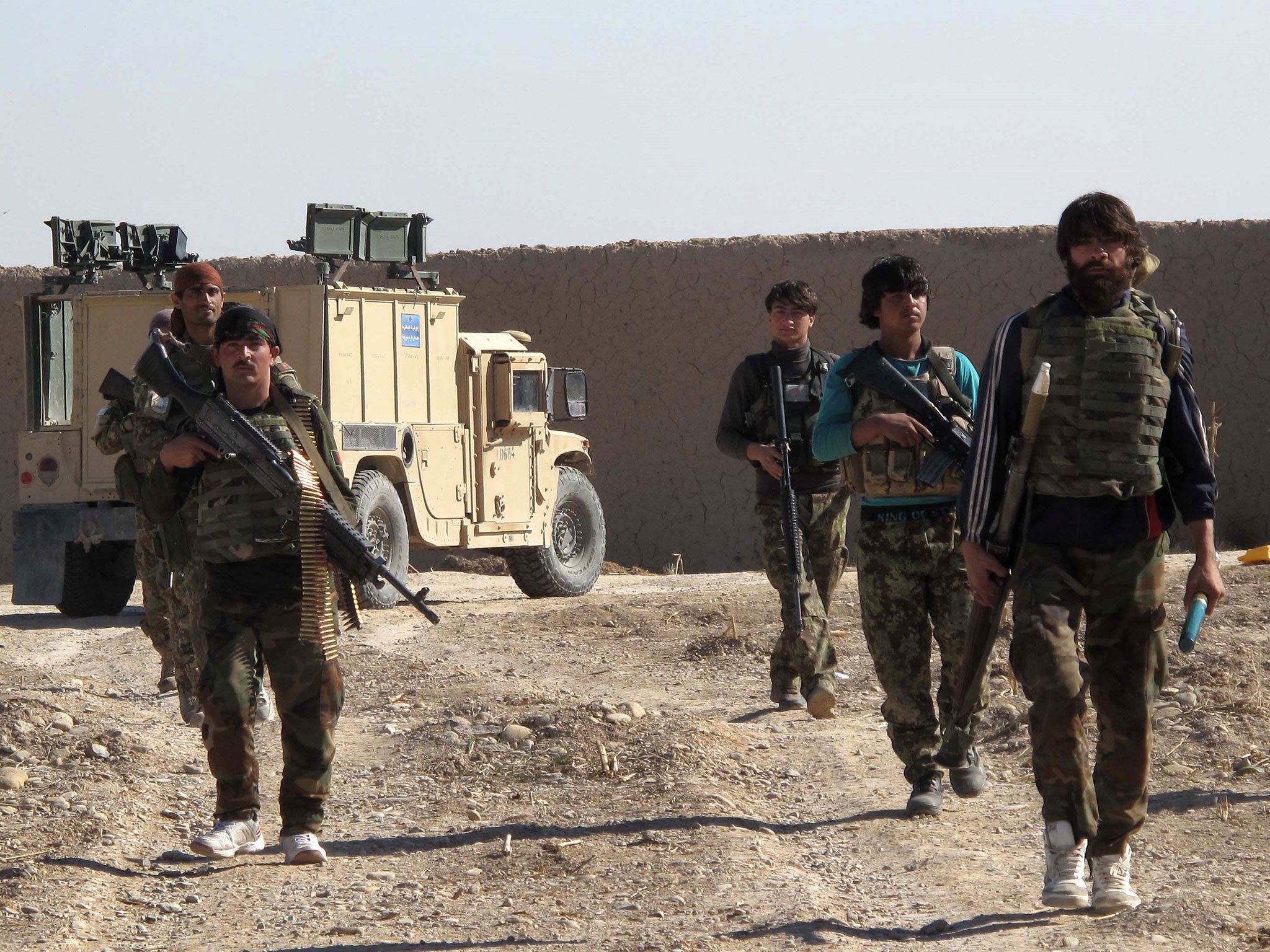My time as an RAF pilot in Helmand has never left me - and I feel conflicted about the 450 troops returning
The scenery was breathtaking - and the process of repatriating our fallen comrades back to the UK from Camp Bastion and Kandahar was heartbreaking

Your support helps us to tell the story
From reproductive rights to climate change to Big Tech, The Independent is on the ground when the story is developing. Whether it's investigating the financials of Elon Musk's pro-Trump PAC or producing our latest documentary, 'The A Word', which shines a light on the American women fighting for reproductive rights, we know how important it is to parse out the facts from the messaging.
At such a critical moment in US history, we need reporters on the ground. Your donation allows us to keep sending journalists to speak to both sides of the story.
The Independent is trusted by Americans across the entire political spectrum. And unlike many other quality news outlets, we choose not to lock Americans out of our reporting and analysis with paywalls. We believe quality journalism should be available to everyone, paid for by those who can afford it.
Your support makes all the difference.As a Royal Air Force transport pilot, I had the immense privilege of witnessing the beauty and diversity of Helmand provinces changing seasons whilst flying over 100 combat missions in Afghanistan. The Helmand river and the green zone surrounding it are a remarkable sight from the air - as are the burnt-out valleys and angry peaks to the north, and the endless flat desert plains surrounding it on all other sides.
Those views are as diverse as the weather systems and seasons that provide its lifeblood. It is a country of striking beauty and stark contrasts, and provides some of my most vivid memories from my time in the military. For troops on the ground, however, the beauty was masked by the operational challenges and day-to-day conditions that they faced.
Equally memorable are the feelings of pride and sadness I felt while repatriating many of our fallen comrades back to the UK from Camp Bastion and Kandahar as well as returning the severely injured back to the Queen Elizabeth Hospital in Birmingham on a much-too-frequent basis. The military is one family and to witness the regularity of the losses and the many stories of true bravery firsthand was shocking and humbling in equal measure.
The inevitability of those seasons, bitter winters, spring snow melts, baking summer droughts and apocalyptic autumnal dust storms remind me of yesterday’s inevitable reintroduction of British military personnel back into Helmand province in support of the Afghan National Army in Sangin. It was only a matter of time.
Only a few months ago, the last C-17 Globemaster transport aircraft took off from Camp Bastion and the subsequent handover of the sprawling base to the Afghans marked the beginning of the end for the UK combat role - or so we thought. Many of those involved at the time hoped this would be the case but in reality knew that for all the efforts and all the sacrifice on behalf of the UK and wider coalition, the situation we were leaving was on a knife edge. It was going to be a tough job for the newly reinforced and trained ANA to hold the line without coalition input, and it appears our fears have now been confirmed.
Yesterday's announcement of 450 troops being deployed to help in an advisory role is a drop in the ocean compared to the 10,000-strong force in Helmand during the height of the conflict. It is, however, a significant enough statement that all is not well in the ranks of the ANA.
It has the feeling of previous support operations provided to Iraqi forces during the Arab spring and the subsequent rise of Isis - and unfortunately indicates that for all the efforts and toils to provide a stable footing for democracy to flourish, the post-pull-out vacuum rarely succeeds in creating an environment for success.
Those debilitating autumnal dust storms were often triggered by the never-ending convoys of coalition troops battling across the dust plains of Helmand and the explosion of munitions from both sides. These troops for now won't be getting their boots dirty, and their advisory role may seem a safe one, but I do hope ardently that this doesn't mark the beginning of a slide back into larger involvement in the region.
I feel that a chapter of my life is intrinsically linked with this relatively small combat zone in southern Afghanistan, and I feel that I have a connection with all those who have served there. I also know only too well how it feels to be stationed there at Christmas. Christmas is a time for family and the families of those 450 troops will today be feeling anxious and troubled.
I for one will be thinking of them this Christmas, and wishing them a speedy reunion with their loved ones in 2016.
Join our commenting forum
Join thought-provoking conversations, follow other Independent readers and see their replies
Comments